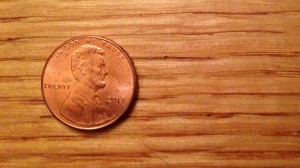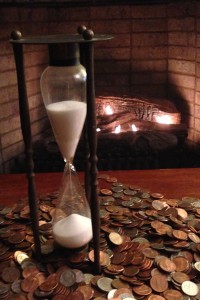The Coin We Pay | Matthew 22:15-22 | Lectionary Project
 Taxes are as certain as death, we say. Those are the only two things we tend to say it about, death and taxes. Saying it may be more of a confession than we know. It may be that those are the things we believe are true.
Taxes are as certain as death, we say. Those are the only two things we tend to say it about, death and taxes. Saying it may be more of a confession than we know. It may be that those are the things we believe are true.
Conniving tricksters came and asked Jesus whether it was right to pay taxes. They weren’t seeking clarity and insight, and they certainly didn’t have the courage to rebel and refuse to pay their taxes. They just wanted to throw Jesus under the express bus to Rome.
“Give to caesar the things that are caesar’s and to God the things that are God’s,” Jesus told them.
Separate what is God’s and what is of the world. That is the plainest meaning of what Jesus told the fellows trying to get him on the wrong side of the emperor. It is worth a second reading, though. Jesus saw through the deception, but he may have laid a trap of his own. What if there was another meaning to his answer?
Jesus asked what likeness was on a coin. The tricksters thought Jesus meant the one in his hand.
What if the point was to get us to recognize the coin we use? The old challenge is to put your money where your mouth is. Maybe this challenge is to recognize the price we pay. The trick is to see that the coin we use is stamped with our own likeness.
Everything comes with a price. Each day, each choice. Every yes contains a no, as the saying goes. For every choice, we pay the price in time, in thought, in energy, and in the effect on who we are and who we might become. That is the price we pay.
The coin we use is life. And we pay it either for something ephemeral or for something that lasts. When we look in the mirror and see someone wrinkled and spotty looking back at us, what do we have for the price we paid? What did our coins get us? Where did we invest our assets?
The face on the coin is our own. The currency is measured in time, our time, our lives, and there is a hole in our sock. There is less in the bank every day, whether we buy anything with it or not.
Let the world collect its gold. It never was ours. If you don’t believe me, try dying and see what happens to the dollars you’ve got piled up. Our wealth melts away even faster when we move on than when we were alive, and after a couple of exchanges nobody remembers what hand held it.
Our lives are not like that. Even if we believe that after death there is nothing, there was still this life. We may feel that our lives are inconsequential, of no account, but we have a real effect, good or bad, on the people around us. Their lives are different because of ours, and ours changed because of them. We can’t see our own legacy. Perhaps that is God’s work.
And if we believe that life continues after death, then we carry that sum of choices with us, the transactions of our souls. Each moment continues to be an opportunity, a new investment.
The coin we pay is life. Shop well.

